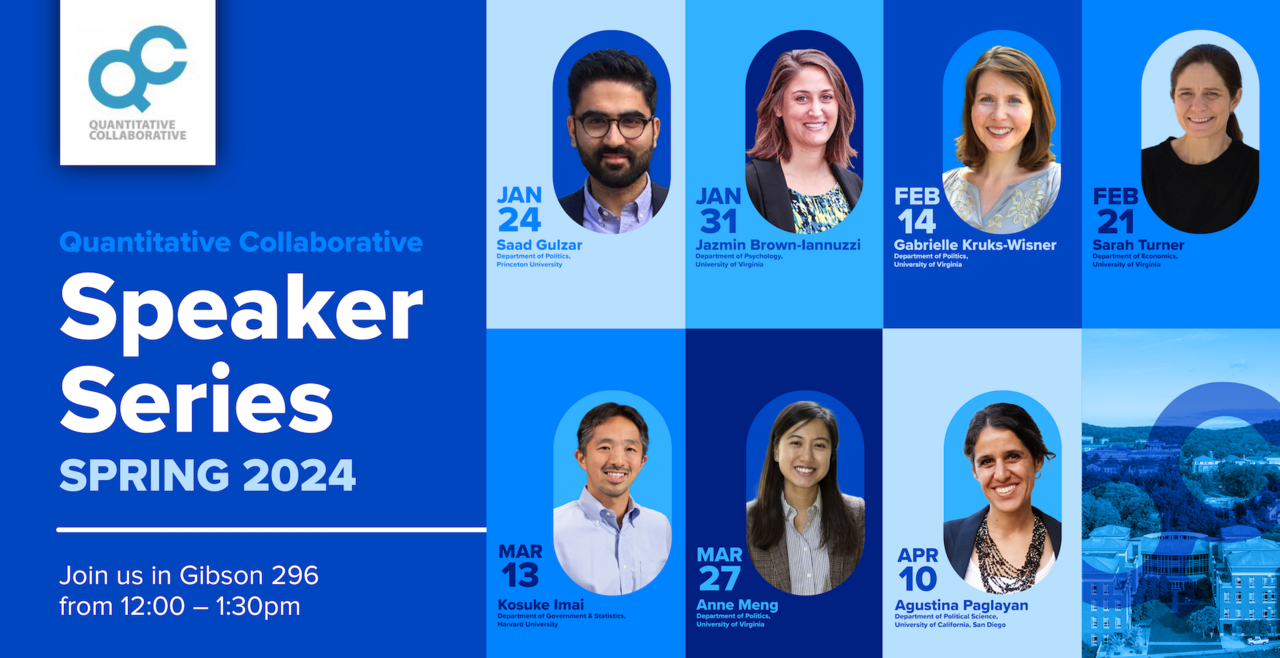The University of Virginia’s Quantitative Collaborative (QC) is committed to supporting and enhancing the work of faculty and graduate students who employ quantitative methods to analyze social behavior.
Our Mission
The Quantitative Collaborative (QC) defines an organizational umbrella under which quantitative social scientists, regardless of department or school, gather to pursue research questions of common interest. As its name suggests, the QC also fosters and provides a natural locus for quantitative partnerships and interdisciplinary collaborations.
The QC has four core thematic areas:
- Data Analysis/Quantitative Methods,
- Mathematical Modeling,
- Experimental Social Science, and
- Data-Gathering Methodologies.
The Data Analysis/Quantitative Methods area encompasses econometrics, quantitative political and sociological methodology, psychometrics, and statistical evaluation methods in education and public health. The Mathematical Modeling area focuses on formal (mathematical) models of economic and political behavior, drawing primarily on scholarship in Economics and Political Science. The Experimental Social Science area focuses on laboratory and field experimentation as it is currently practiced in the Departments of Psychology, Economics, Political Science, and Anthropology. The Data-Gathering Methodologies area encompasses topics such as sampling and survey methodology. Through these focus areas, the QC nurtures nascent partnerships across the quantitative social sciences in the exploration of new avenues of research and in tackling key issues facing the modern world. It also serves as a nexus for building informal, interdisciplinary networks and for disseminating (to faculty, graduate students, and undergraduates) the most recent advances in the field.
Our goal as an organization is to:
- support instruction at the undergraduate/graduate level in quantitative methods,
- foster fundamental research in the quantitative social sciences,
- bring increased grant dollars to the University in support of such research,
- help shape key public policy issues, and, in so doing,
- bring greater visibility and recognition to the University as a national leader in the fields of social science.

